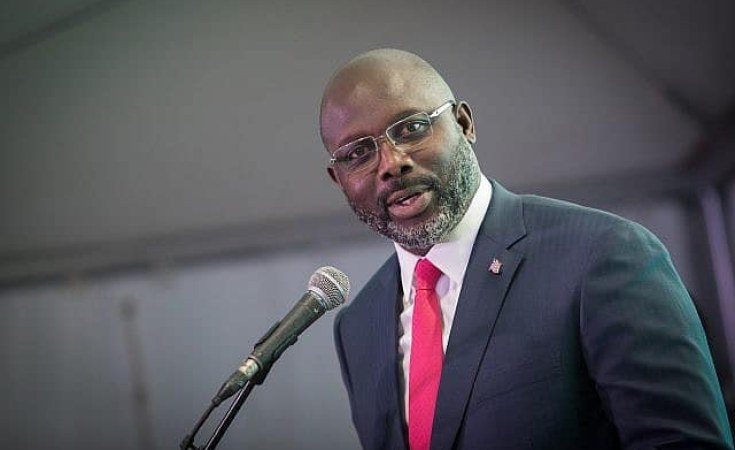The days and months ahead might be challenging for both the Government and the Opposition CDC, and by extension, the nation in whole. Unless both the Government and the Opposition begin to sit at the table to discuss how this nation should proceed, Liberia could stand still on April 6, 2024, and be dragged into prolonged crisis.
As protestors and government are engaging in bloody faceoff, there are more potential dissensions and possible outbreak of more bloody violence that may leave this nation wrecked if the CDC commits itself to its planned protest on April 6. Both parties could avoid unfortunate occurrences by putting in place a constructive engagement policy that utilizes the Henry Kissenger's Dente strategy and the Mikhail Gorbachev's Perestroika and Glasnost methodologies.
Liberia's democracy is still fledging, and there is no need to stretch it beyond its capacity to endure. Political parties are governments in waiting and must be interested in maintaining peace, stability, and promoting national unity and development, and not just the urge to obtain or maintain power.
Though the CDC endured six years of harsh criticisms and mass actions from rival parties during its reign, that should not lead to an adoption of a vicious cycle that may paralyze economic and social opportunities and lead Liberia into catastrophic events.
As the former ruling party, the CDC is in the best position to teach the lessons of what mass action (protest) does to the economy, and how the opposition actions led to hatred and almost pushed Liberia into another civil war. Thanks to former President George Weah for his endurance and his peaceful nature. But all presidents may not have the nature and abilities to respond to pressure and mass actions as former President Weah did.
It is therefore important that the Coalition set up a dialogue team to always sit with the Government to discuss national issues just as they were willing to sit with the opposition during their reign to discuss critical matters and find common grounds. The UP Government also needs to adopt a kind of "glasnost" policy (transparency, openness) and be willing to meet with the opposition at all times.
Liberia can model its democracy in a way that produces politics with a human face rather than politics with a demon face. The opposition can become more powerful and meaningful when they, unlike the opposition of the past, invest their time and energy debating policies, making recommendations, working with citizens groups to maintain peace and bring investments that will help provide job opportunities for Liberians and make its democratic commitment enviable.
[bsa_pro_ad_space id=1]
The CDC has already experienced what the UP is experiencing now. It is easy to govern when you are not seated in authority. It is easy to criticize when you are an observer. Governance is complex. It is the convergence of many interests and dealing with them could be very challenging.
Some of CDC's major challenges were power brokering, accessibility problems amongst institutions and officials, and supremacy competitions which created inner circles and domineering attitudes that erected barricades between the President and other officials. President Boakai must seek to terminate these from his Government. But CDC strength was in its commitment to infrastructural development and protection of democratic rights at its own peril of existence.
Channels must be opened at all times to access different or critical thoughts without plans of persecution and prosecution. When the channels of communication are opened and citizens are accessible to the powers that be, there would be the free flow of views, the buy-in of citizens and acceptability of policies.
On the contrary, when government becomes so self-protective, self-righteous, and critical voices are violently silenced, conflicts will take the center stage and crisis will ensue. Guns and bloodshed can oppress views, but cannot unite a nation and develop a people.
The Cape Mount violence and that of the University of Liberia students protest have generated so much negativity politically and have damaged Liberia's democratic image. This is not a good success story.
We can succeed and achieve better results at the negotiation table rather than in violence and bloodletting. Through negotiations, we build our democracy credibly and demonstrate political maturity. Through bloodshed, we show ourselves as the intolerant people who almost wipe themselves from the face of the Earth.
The recent bloodshed in the Bea Mountain Concession Area and the University of Liberia is the result of democratic rights exercised through protest. But moving forward, we can avoid further bloodshed when we constructively engage than when we seek to make the nation ungovernable.
Protest is however a democratic right, but should be the last recourse when all dialogues and negotiations failed. Government must therefore be sensitive and swift at addressing problems that might lead to protest and bloodshed.
In the same vein, we must avoid a vengeful protest that only seeks to provoke and achieve a payback. The CDC needs to help guide the democratic process and protect the peace by utilizing its strength in the Legislature and its six years of experience. April 6 might not be needful as it might end up as the Bea Mountain and UL Students protests.
We need to reform our political and democratic approaches. Mikhail Gorbachev called his, the Perestroka Movement and Glasnost. Richard Nixon called it Détente and Constructive Engagement to manage crisis in the world, but we can call it the New Agenda to safeguard our peace and democracy.
Think Liberia, Love Liberia, Build Liberia.


